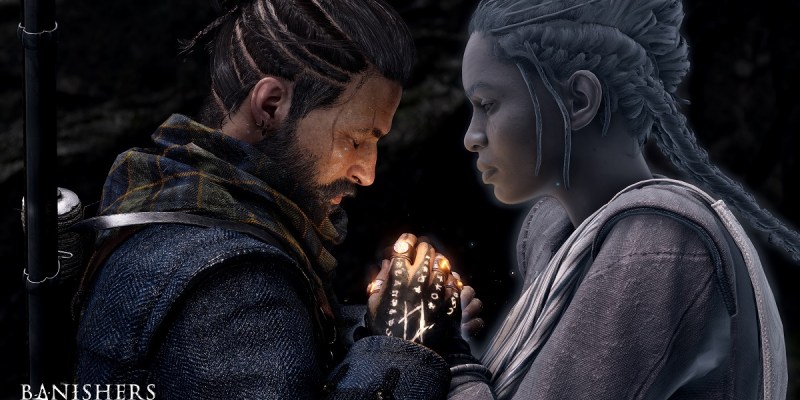Warning: The following article about Banishers: Ghosts of New Eden contains spoilers.
Of all the choices, the oath to your lover weighs the most. She’s a fading, spectral figure haunting you throughout the work of expelling the dead from the world, and you say you’ll do the same for her. You argue against using a sketchy resurrection ritual to bring her back, but along the way, curiosity bends you back to trying this.
All you have to do is sacrifice someone – anyone. Tear the soul out and spit on your teachings to fulfill your desire, to feel her touch again.
Banishers: Ghosts of New Eden tells me that going against this oath has consequences, but after I killed a poor woman to see what would happen, the protagonists didn’t react or even discuss what I did. The work continued. The effect of decisions will change the game’s ending; however, the conflict you’d expect from breaking a promise had no meaningful whiplash at that moment.
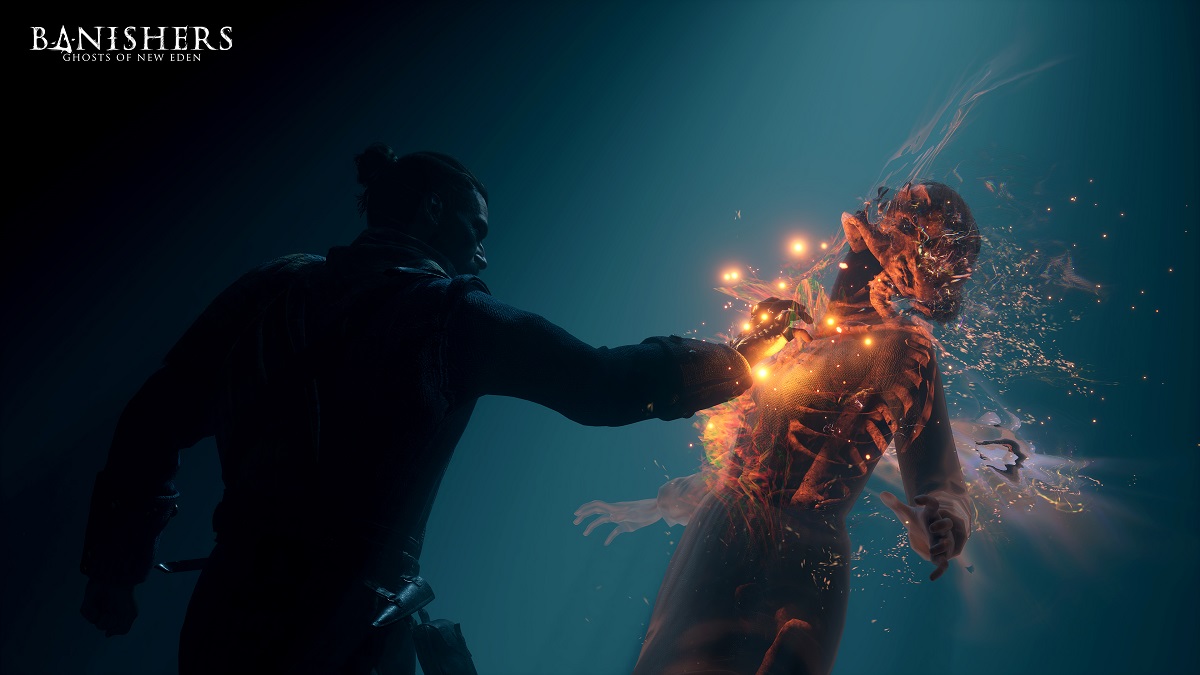
Afterward, choices were hollow and lacked intensity. Their depth felt almost illusory, which became a persistent, flawed theme of even other game systems in Ghosts of New Eden. I say this, but the narrative and its characters offered a rousing enough tale that I’d do it over again.
As Red and Antea, two Banishers-turned-lovers who live their days exiling roaming dead souls and dispelling hauntings across society, you arrive in New Eden to banish a new threat called a Nightmare. Unfortunately, you fail to do so and Antea dies, later rising as your ghostly companion who can only move on after recovering her body. Failing to purge this Nightmare has warped this slice of the 17th-century New World into badlands teeming with vicious specters and haunted settlers, so you have your work cut out for you.
The narrative here is very raw and intentional – the gravity of death and horrible things happening molded into facial animations, ranging from smoldering eyes to long, heavy sighs – each expression a believable, painful reflection of the times.
Red shoulders the death of Antea while investigating cases of people haunted – chased by their pasts from Europe and the horrors of the present in the New World. They’re assaulted on all sides by physical threats like blood-hungry wolves or sickness and supernatural nightmares. Seeing their troubles makes it easy to involve yourself in their stories.
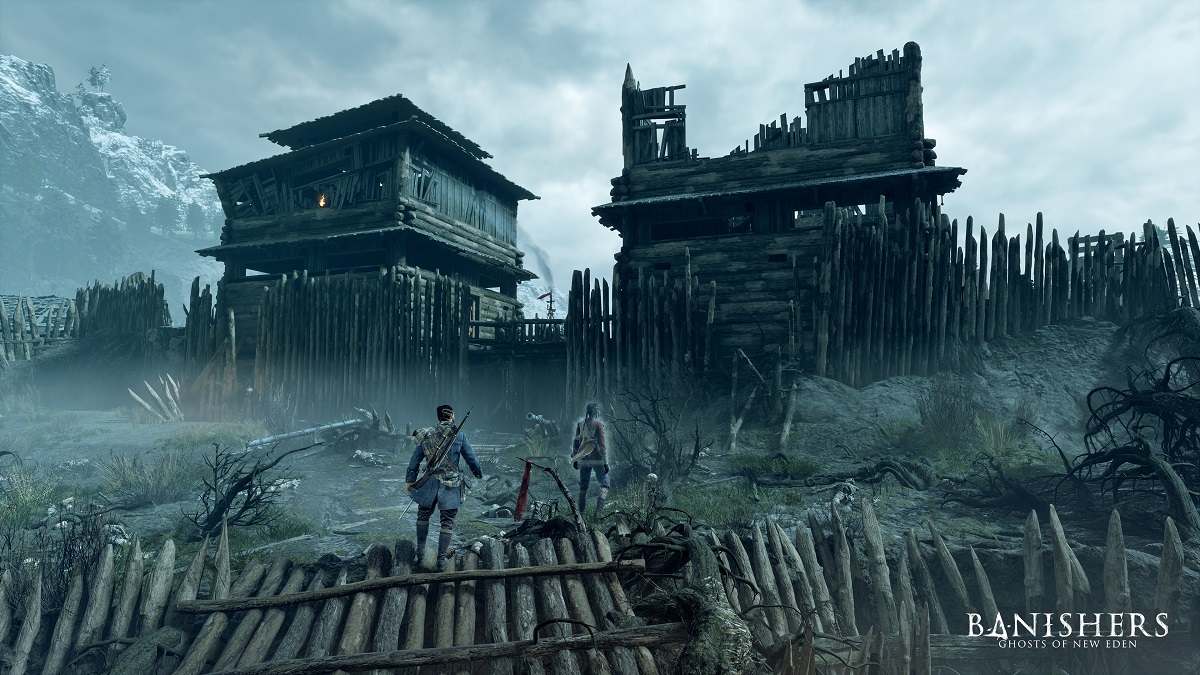
I’d cleanse a villager of a life-threatening possession, then step into a mysterious case about a complex murder that spawned an angered ghost. These flawed, tormented characters were the best part of Ghosts of New Eden, far more so than Red and Antea at times. But the conclusion of these cases always failed to resonate profoundly with my oath to Antea at the beginning of the game.
Related: All Pre-Order Bonuses & Editions for Banishers: Ghosts of New Eden
You can choose to sacrifice the person haunted or help the ghost haunting the person move on by banishing or ascending them peacefully at the end of cases. Depending on your oath, you’ll feel encouraged to stick to what you’d do for Antea since whatever you decide will affect the game’s ending. My issue is that the game doesn’t inspire you to go against what you said, and practically nothing besides the ending pushes back on you breaking that promise. The deepness behind choices signified throughout the game never came. I always chose whatever I morally aligned with rather than feeling torn about what I decided for the characters.
This false depth appears in the combat system of Ghosts of New Eden, too. Around the 15-hour mark, battles become repetitive and dull because you’ve seen the same enemy types. Combos are vanilla one-two-three attack strings of mashing the same button until the enemy dies. Switching between Antea and Red staves off this monotonous cycle early on since one character deals better damage against specific foes, but all that freshness will crumble. However, what severely undercuts combat the most has to be the skill tree and its absence of game-changing options.
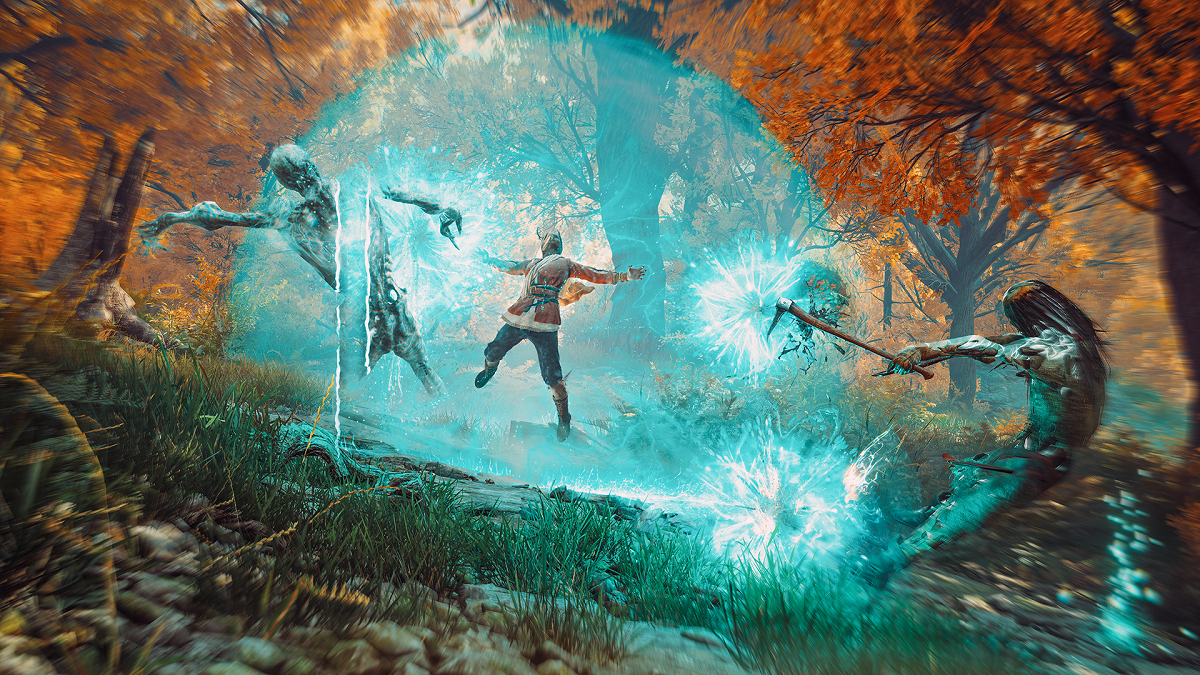
You’ll unlock passives with improved attack percentages and abilities to combo-swap into Antea like a counter or running jump punch, but these will feel identical over time. You’re not gaining new combo inputs for Red, unique mechanisms for the rifle, or passives to drastically change how Antea’s powers form and work. Nothing is challenging you to play the game differently, and that’s a shame because combat feels like a good marriage of God of War and Elden Ring – two games where player choice matters, but Ghosts of New Eden drops the opportunity.
Related: Long-Awaited New Game Plus for God of War Ragnarok Is Out
It’s frustrating because the game has this gorgeous Metroidvania-styled game world with plenty of content to test your skills and earn powerful equipment.
Mountainous regions hide underground secrets where I found weapons/accessories for Red and Antea; boggy swamplands held difficult enemy gauntlets with the reward of rare equipment upgrade resources; barricades and overgrown vines were outside settler camps and ruins – Antea’s spectral powers blowing open these obstacles to more content and treasures. Ghosts of New Eden does a fantastic job of mystifying the world’s limits, but combat can make exploring a slog.
But, by far, the biggest flaw of Ghosts of New Eden was Antea and Red’s relationship. Immediately, you’re hopping into their lives at a climactic peak where everything that came before only appears as inside jokes or briefly while investigating a haunting case. So many times, I felt like I didn’t really know them or their relationship.
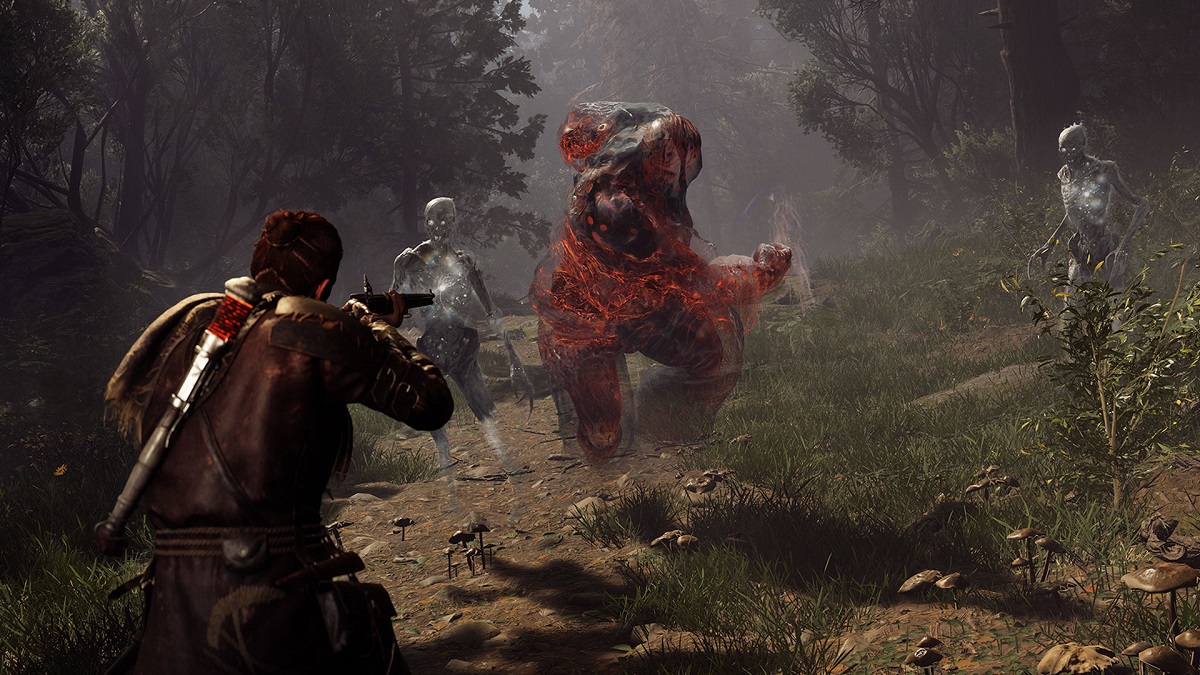
Glimpses of their background pass within a breath or a short scene and never surface elsewhere for the player to learn more through an optional encounter or vision. Just enough is fed to you through the story moments to keep you invested, but I’d argue more was waiting underneath.
Ghosts of New Eden markets itself as an emotionally fueled tale where these two are at the focal point of everything; however, the game works against this by not letting you sit with them outside pivotal scenes. Sadly, I saw the potential for this.
While Red rests at a campfire, time spins forward with Antea staring down at her partner and balling up near the flames because she can’t sleep, and every time I saw it, I hoped Ghosts of New Eden would let me break the rest to chat with Antea. As I progressed, the campfire could have been the nexus to pierce into hopes, dreams, the past, and much more between Red and Antea versus the short blips of dialogue thrown around the game.
Many parts of Ghosts of New Eden want to convince the player that everything has a weight and consequence you should be wary of. To some extent, this is true, but it largely lacks the execution to make a player question their choices or how they engage in combat. Ghosts of New Eden has a genuinely strong narrative, characters, and world but struggles to capitalize on its most compelling angles where it matters most.
Banishers: Ghosts of New Eden is available on PC, Xbox, and PlayStation.
A review code was provided by the publisher.
